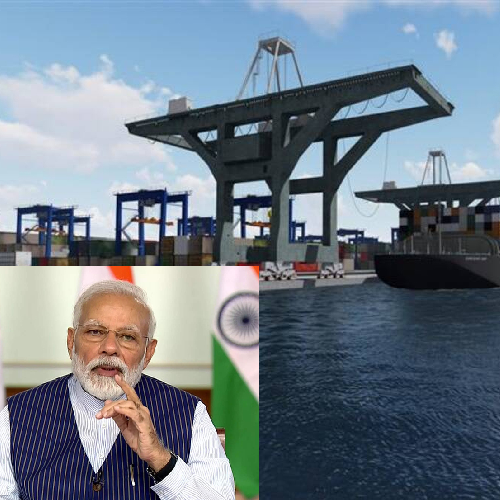Bhavnagar to Host the World’s First CNG Terminal
Prime Minister Narendra Modi has laid the foundation stone for the world’s first Compressed Natural Gas (CNG) terminal at Bhavnagar, Gujarat — a landmark project worth ₹4,000 crore. The initiative will modernize the existing Bhavnagar port and is expected to transform the region into a major maritime and industrial hub.
A Vision from Vibrant Gujarat to Reality
The concept was first announced at the 2019 Vibrant Gujarat Summit, when a consortium of the Foresight Group (London), Padmanabh Mafatlal Group (Mumbai), and Boskalis (Rotterdam) signed an MoU with the Gujarat Maritime Board (GMB). In September 2020, GMB issued a Letter of Intent to the consortium’s special purpose vehicle — Bhavnagar Port Infrastructure Pvt. Ltd. — under the BOOT (Build, Own, Operate, Transfer) model.
Strategic Location & Connectivity
Bhavnagar port is located close to the Dholera Special Investment Region (SIR), making it a key gateway for industries in the area. It is already linked to northern India via a dedicated railway line that connects directly to the port’s berths.
Project Highlights
- Capacity: 4.65 MTPA (including 0.3 MTPA for CNG).
- Operational Timeline: Construction to begin in early 2023; operations expected by 2026.
- Infrastructure Upgrade: Redevelopment of the tidal lock-gate system, the fourth largest in the world, reducing dredging costs caused by high sedimentation from a 10-meter tidal range.
Beyond the CNG Terminal
The project also includes:
- An ultra-modern container terminal.
- Multipurpose terminal for LPG and chemicals.
- Ro-Ro terminal for vehicles and wheeled cargo.
- Liquid cargo terminal.
Economic Impact
At a public event in Bhavnagar, PM Modi highlighted that development works worth ₹5,200 crore — spanning energy, water supply, and port sectors — are being launched in the city. The new CNG terminal is expected to bring immense economic benefits, boosting India’s container supply capabilities and strengthening its maritime trade network.


